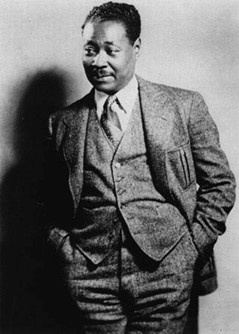
Economists across the ideological divide are at least at one when it comes to the economic value of goods or services that is derived from the contribution of labour. Adam Smith, the father of capitalism, argued that while the price of a commodity would, among other things, be determined by the value in its trade; wages, profit and rent are the three original sources of all revenues as well as of all exchangeable value.
The noted British economist David Ricardo advanced the theory that “the value of a commodity, or the quantity of any other commodity for which it will exchange, depends on the relative quantity of labour which is necessary for its production…” It was however left to the German philosopher and political sociologist Karl Marx to put it clearly and succinctly when he said that the true value of a commodity can only be objectively measured by the number of man-hours that has gone into its production.
That there was a value derived from the use of forced labour in the planting, harvesting and processing of sugar cane cannot be in dispute. The ‘white gold’, as the British colonists called it, was by far the most important commodity to the Europeans. Eric Williams traced the remarkable value of the triangular trade to the British empire in his book From Columbus to Castro: the history of the Caribbean, 1492-1969, which led him to link the success of the industrial revolution to the slave trade and argued that the real motivation behind its abolition had more to do with economics than morality.
For instance, the Royal African Company, set up to trade in slaves across the middle passage, was said to be making an average profit of 38% per voyage during the mid-17th century. It was sugar’s potential as income for the further development of Europe that underpinned the existence of the slave trade. And it was the profits from enslaved labour that fuelled the economic growth of Europe and provided the vehicle for the rise of the merchant class to the ‘vaunted’ position of royalty.
Slavery depicted the cruelty of human trafficking and the moral and ethical wrong committed upon humanity which provides a compelling case for reparations, and much of it, of course, rooted in international law. University of the West Indies Vice Chancellor Sir Hilary Beckles is leading the charge on behalf of the Caribbean community, having laid the foundation in his book, Britain’s Black Debt, which sets out the “legal principles of unjust and criminal enrichment” by the British in particular and the social justice, equity, civil and human rights violation which has ripped asunder the fabric of Caribbean societies over a 500 year period.
The horrific and debilitating effects of slavery we simply cannot move past, and to even suggest that – as a former British Prime Minister did – is to ignore the psycho-social consequences of a brutal and oppressive system that became the economic cornerstone on which British power and wealth were built. There is indeed a case for reparatory justice where Britain and other European countries have enriched themselves through the criminal accumulation of wealth.
The Caricom Reparations Commission, which Sir Hilary heads, has set out its case against European governments – “the owners and traders of enslaved Africans [who] instructed genocidal actions upon indigenous communities”. In its 10-point action plan it sees the need for “compensation to the enslaved with the ending of their enslavement”.
One aspect of the reparations argument must quite rightly be centred on the process of healing, repairing and restoring the dignity of Africans and their descendants who had their fundamental rights violated by these European powers. But there is an equally potent argument that retrospective payments must be made to the descendants of slaves for the man-hours invested in the production of sugar. Wage payments therefore matter.
Slaves were to live their lives in perpetual service to their masters; they were controlled, directed by their masters and eventually seen as property to be sold as a commodity or passed on as an inheritance at the master’s discretion. The condition of slavery was transmitted from parent to child.
It is important to note that during the period of slavery the employment relations in Britain were governed by the traditional master-servant relationships. Various statutes were introduced in an attempt to direct working conditions and to control wages. Provisions to prohibit conspiracies to raise wages and provide for prosecutions for criminal conspiracy at common law were introduced in the 1560s. These laws existed in Britain during the period of slavery, and despite common law provisions which favoured masters over servants and punished servants for breach of contract through whipping, imprisonment, fines or compelled labour, wages – however grossly inadequate – were paid. The value of labour’s input in the provision of goods and services was fully recognised in English law.
Africans were forced into a contractual relationship on the plantation for which they were under the control of their masters. The sugar planters needed a form of legal relationship to govern large scale employment on the estates. Slaves needed to work for set hours per day, mainly in repetitive tasks and to be governed by strict discipline during, and even outside of working hours. The slaves (workers) had to uphold their end of the contractual arrangement including a duty on their part to be obedient, diligent, faithful, loyal and trustworthy.
This gave the slave masters (employers) ample capacity to enforce discipline and control activities on the plantation, and to ensure that their business interest in the sale of sugar was fully protected.
What was therefore missing from this time-service contract was the monetary payment, which was due to those who provided labour on the plantation. There were no legislative interventions in relation to the slave as property, and outside of the statutes facilitating the slave trade, the relationship on the plantation was largely developed through common law. In fact, the foundation of British law, the Magna Carta, recognised the basic right to liberty for all and the fact that people had a basic right not to be the subject of assault by others.
The English campaigner, Granville Sharpe, had once argued that existing English law did not allow for slavery, and only “positive law” could bring it into legality.
While it may be necessary to concede that an understanding of the contractual nature of the employment relationship may be derived more as an artefact of history than a natural necessity, it never deprived the worker of the compensation that is due to him from the value of his labour contribution to the production process in Britain during the time of slavery.
Compensation was in fact paid to the slave owners – reparation payments of the order of £20 million to compensate some 3,000 families for the loss of their “property” when slave ownership was abolished. The equivalent in today’s value would be in the region of £17 billion or approximately 40% of annual budget spending in Britain.
That reciprocal relationship between the master and servant must be complete with the payment of retroactive wages to the descendants of the slaves. It is the natural order of the contractual relationship which must be honoured. There can be no moral or legal justification not to pay up at today’s equivalent, and pay up now.
But here is where the case becomes interesting. To compensate the slaves would be for the present European leaders to admit that it was utterly reprehensible to have categorised Africans as ‘property’ in the first place; upon that admittance the £20 million paid to slave owners would therefore be invalidated.
If, however, the argument has to go beyond a commitment to honour the contractual obligation to provide retroactive wage payments to the ancestors of slavery, then the modern-day equivalent of an attitude similar to that of our colonizers would undoubtedly still prevail.
Professor Verene Shepherd’s Commission should take note of the emphasis on wage compensation, and make the case for an entitlement to retroactive wage payments under the master and servant relationship which obtained on West Indian plantations. Even among the black masses we do have to ensure that we ourselves do not diminish our humanity, dignity and self-respect by even thinking that as slaves we were anything less than human beings, with full rights and responsibilities under God’s Kingdom. Justus Annunen Womens Jersey




Thanks very interesting blog!